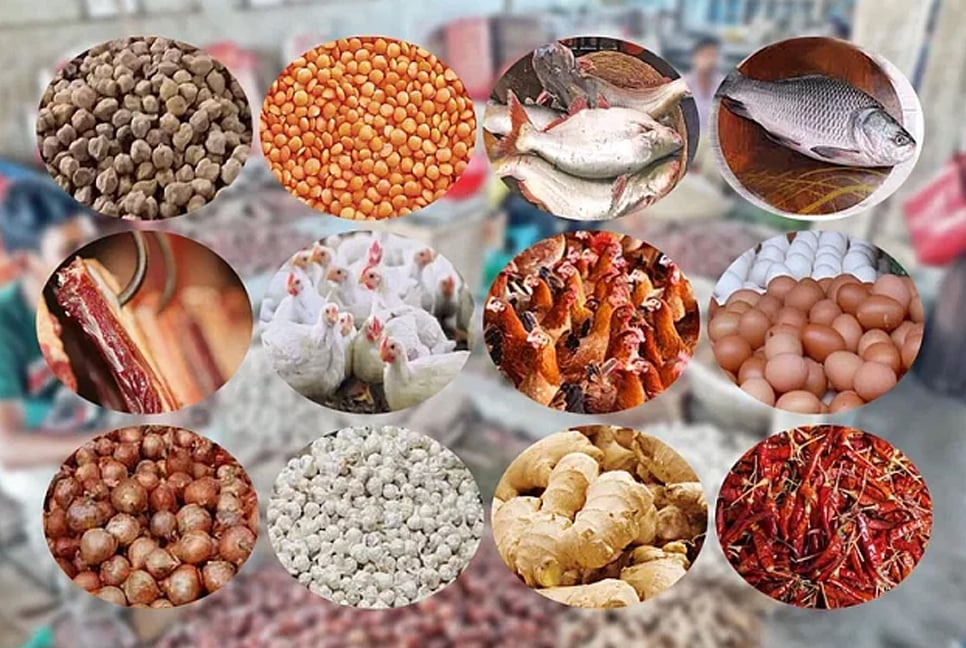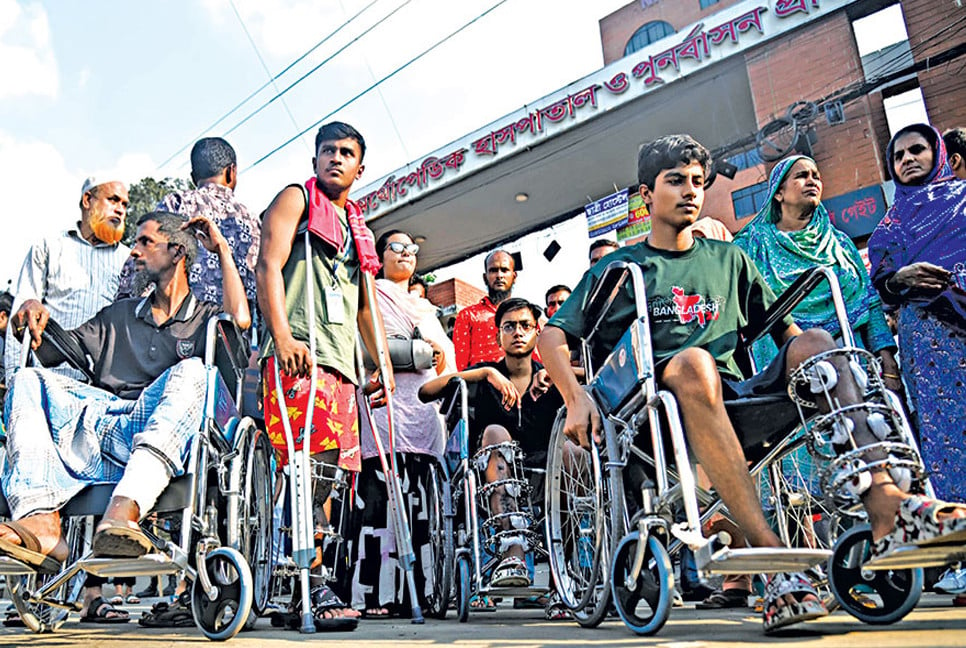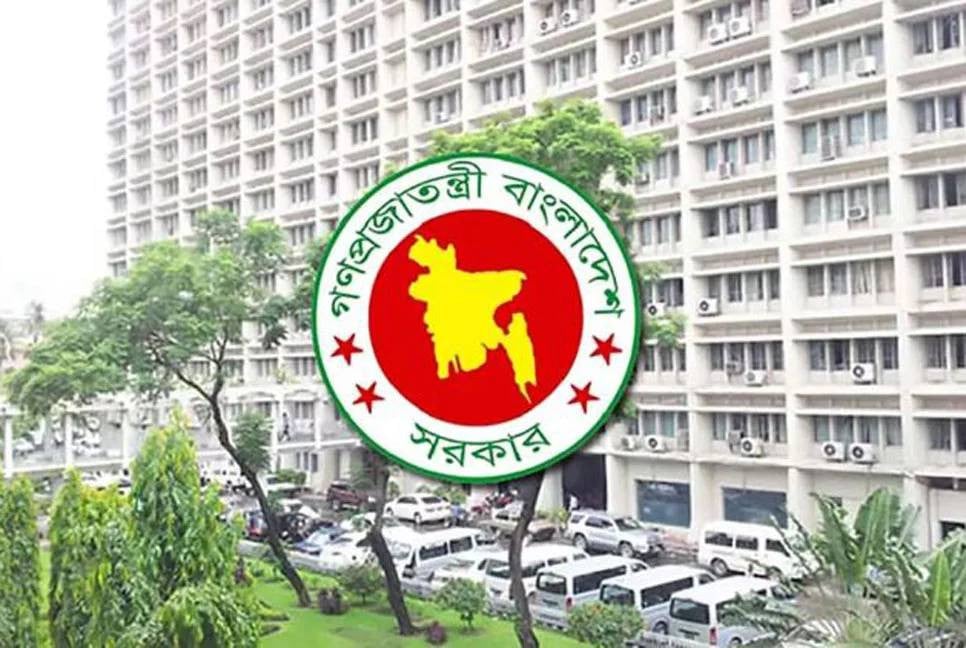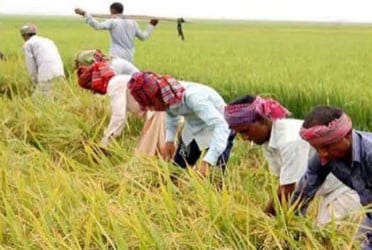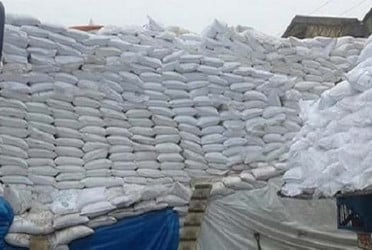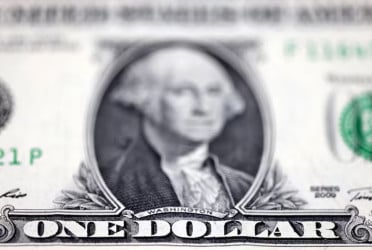The market for daily commodities shows no signs of relief, as prices continue to rise despite government intervention. Recent reports indicate that the prices of eggs, broiler chicken, and golden chicken have surged by Tk 10 to Tk 20, even after the government established price caps on these essential items.
In a bid to alleviate costs, the government has reduced tariffs on imported potatoes and onions, yet market prices remain stubbornly high. Vegetables, in particular, have seen significant price increases, contributing to growing unrest among the public. This situation was evident in markets across Khilkhet, Badda, and Rampura in the capital on Friday.
Currently, eggs are being sold above the government-mandated prices, with a dozen brown eggs priced at Tk 170-180 and white eggs at Tk 160-170. The cost of broiler chicken ranges from Tk 190-210 per kg, while golden chicken is selling for Tk 260-280.
Recently, the Department of Agricultural Marketing set maximum retail prices at Tk 180 per kg for broiler chicken, Tk 270 for golden chicken, and Tk 142 for a dozen eggs. According to these guidelines, the retail price for an egg should be approximately Tk 11.87, yet it is being sold at Tk 15.
Even though tariffs on imported potatoes and onions have been alleviated, onions are still being sold for tk 110-115 kg in the market. The Indian government has also reduced tariffs on onion exports and lifted the minimum price restrictions. Both of these measures have been implemented.
However, its impact is yet to be seen in the market. Furthermore, the price of potatoes has not decreased. Like before, potatoes are still being sold at tk 55-60 per kg. The price of local garlic ranges from 220-240 Taka per kg, imported garlic from 240-260 Taka, and imported ginger is priced at 220-280 Taka per kg.
Local ginger is being sold for 130-140 Taka per kg. In the vegetable market, prices of almost all vegetables have increased by 10-30 Taka per kg, except for a few. According to sellers, because of the continuous rain over the past few days, a lot of vegetables were damaged. As a result the prices are higher than usual. Almost all kinds of winter veggies such as beans, cauliflower, cabbage, radishes, okra are available in the market. Even though the market has an ample supply, the prices remain high. So the buyers are dissatisfied.
Sellers state that the okra is selling for tk 70-80 per kg, bitter gourd for tk 80-90, eggplant for tk 60-80, turnips for tk 100-110, radishes for tk 50-60, and green papaya for tk 30-45 per kg. Cucumber and carrot prices are also high, with local cucumbers at 80-90 Taka and hybrid cucumbers at 60-70 Taka. Depending on the quality, carrots are priced at tk 100-130 per kg.
A buyer named Sabbirul Islam said, “Almost all the vegetables are priced above 50-60 Taka. The market has plenty of vegetables, yet the price is out of our hand prices. Just buying two or three types of vegetables costs more than tk 150. Even if I rely on just vegetables, it’s difficult to manage expenses. On the whole, lower income people are struggling.”
Despite no shortage of rice in the market, there is still no relief in prices. The minimum price for coarse rice is tk 54. Fine rice prices are even higher while medium-quality rice is priced at tk 55 to 60 per kg. Depending on quality, fine rice is being sold for 64 to 78 Taka per kg. According to government statistics, rice prices are approximately 10% higher compared to the same period last year. In this situation, after 14 months, India has lifted the export ban on rice. According to traders, the price will be alleviated to some extent if rice is imported from the neighboring country.
Humayun Kabir Bhuiyan, the Consumers Association of Bangladesh (CAB) stated, “If government agencies work together with the Directorate of National Consumers Rights, it will be possible to control the market. A lot of times, the price-regulating agencies are not seen in market supervision. Furthermore, extortion is also present in some markets. That is why the government's tariff reduction announcements are yet to bring good results. Consumers are forced to buy products at a higher price.”
(The report was published on print and online versions of The Bangladesh Pratidin on October 5 and rewritten in English by Rafid)

